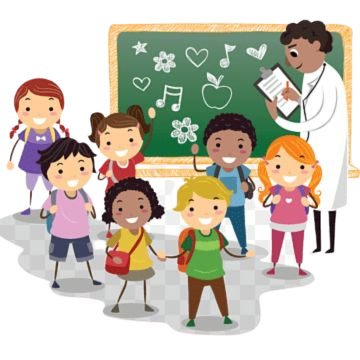KINDERGARTEN
| Junior K.G. | Senior K.G. | Duration |
| 3.5 – 4.5 Years | 4.5 – 5.5 Years | 3 hours / day |
At STARS LIGHTS INTERNATIONAL SCHOOL, our Kindergarten curriculum is designed following the guidelines of the Central Board of Secondary Education (CBSE). Our aim is to provide a strong foundation for young learners by fostering their cognitive, social, emotional, and physical development through a well-rounded educational approach.
We strongly believe that expressing their own thoughts and ideas on paper motivates children to learn more. Our aim is to help each student become an Inquirer; i.e. a person who makes connections, thinks critically, works collaboratively, and develops conceptual understanding. Ultimately, it helps the child derive meaning from the world and decide upon the actions to take.

Key Areas of Kindergarten Education
Core Areas of Learning
Language and Literacy Development
- Listening and Speaking:
- Encouraging children to listen to stories, rhymes, and songs.
- Engaging in simple conversations, answering questions, and expressing needs.
- Pre-reading Skills:
- Recognizing letters and sounds.
- Developing an interest in books and reading.
- Picture reading and storytelling.
- Pre-writing Skills:
- Scribbling and drawing.
- Developing fine motor skills through activities like coloring, tracing, and playing with clay.
- Listening and Speaking:
Numeracy and Logical Thinking
- Number Recognition and Counting:
- Recognizing numbers up to 10.
- Counting objects and understanding quantity.
- Basic Shapes and Patterns:
- Identifying and naming common shapes (circle, square, triangle).
- Recognizing and creating simple patterns.
- Sorting and Classifying:
- Sorting objects by size, color, and type.
- Understanding basic concepts of measurement (big/small, heavy/light).
- Number Recognition and Counting:
Personal, Social, and Emotional Development
- Self-awareness and Independence:
- Encouraging self-help skills (dressing, eating, toileting).
- Developing a sense of identity and confidence.
- Social Skills:
- Sharing, taking turns, and cooperating with peers.
- Developing empathy and understanding others’ feelings.
- Emotional Expression and Regulation:
- Identifying and expressing emotions appropriately.
- Learning calming techniques and conflict resolution.
- Self-awareness and Independence:
Physical Development
- Gross Motor Skills:
- Activities like running, jumping, climbing, and balancing.
- Participating in outdoor play and physical exercises.
- Fine Motor Skills:
- Activities like threading beads, cutting with scissors, and puzzles.
- Hand-eye coordination tasks and craft activities.
- Gross Motor Skills:
Creative Expression and Aesthetic Development
- Art and Craft:
- Drawing, painting, and collage making.
- Exploring different materials and textures.
- Music and Movement:
- Singing songs, playing simple musical instruments.
- Participating in dance and movement activities.
- Dramatic Play:
- Role-playing and imaginative play.
- Using props and costumes to enact stories.
- Art and Craft:
Environmental Awareness and Science
- Exploration and Discovery:
- Observing and exploring the immediate environment.
- Basic understanding of plants, animals, weather, and seasons.
- Simple Experiments and Activities:
- Hands-on activities to understand concepts like floating/sinking, mixing colors.
- Nature walks and gardening activities.
- Exploration and Discovery:
Sample Daily Schedule
- Morning Circle Time:
- Greetings, attendance, and discussing the day’s activities.
- Singing songs and rhymes.
- Activity Centers:
- Rotating between language, numeracy, art, and sensory play activities.
- Outdoor Play:
- Free play and structured physical activities.
- Snack Time:
- Healthy snack break with opportunities for social interaction.
- Story Time:
- Listening to stories and discussing characters and events.
- Exploration and Discovery:
- Hands-on science or environmental activity.
- Music and Movement:
- Singing, dancing, and playing musical instruments.
- Quiet Time:
- Relaxation activities like puzzles, books, and calming music.
- Closing Circle:
- Recap of the day’s activities and preparing for dismissal.
This curriculum aims to create a joyful, engaging, and enriching environment for young learners, laying a strong foundation for their future educational journey.
